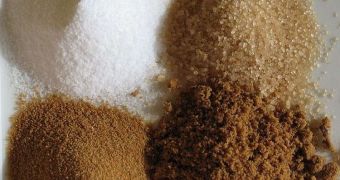According to a new scientific study, published in the latest issue of the esteemed Journal of Physiology, it would appear that consuming a lot of sugar has negative effects on the brains of rats. Scientists use the unsuspecting rodents as proxies for human studies.
University of California in Los Angeles (UCLA) investigators say that high-fructose diets lead to learning and memory deficits in lab rats, and suggest that a similar process may be taking place in humans as well. However, more work is needed to establish whether this is actually the case.
On the bright side of things, it was also found that ingesting omega-3 fatty acids reversed these effects. If the same correlation holds true in humans, then eating a lot of fish and seeds could counteract the neural effects of eating too much sugar, PsychCentral reports.
This is one of the first studies ever conducted on the influence of high-fructose diets on the brain. Past investigations focused on the negative effects that sugars caused on the body through conditions such as diabetes, obesity and fatty liver.
“Our findings illustrate that what you eat affects how you think. Eating a high-fructose diet over the long term alters your brain’s ability to learn and remember information,” explains Dr. Fernando Gomez-Pinilla.
“But adding omega-3 fatty acids to your meals can help minimize the damage,” adds the expert, who holds an appointment as a professor of neurosurgery at the UCLA David Geffen School of Medicine.
The investigator is also a professor of integrative biology and physiology at the UCLA College of Letters and Science. Most of the new research, he explains, was carried out using high-fructose corn syrup, a common additive to numerous products that is six times sweeter than cane sugar.
Officials from the Department of Agriculture (DOA) show that each American consumes an average of 40 pounds (18.1 kilograms) of high-fructose corn syrup annually, inside a variety of common foods.
“We’re not talking about naturally occurring fructose in fruits, which also contain important antioxidants. We’re concerned about high-fructose corn syrup that is added to manufactured food products as a sweetener and preservative,” Gomez-Pinilla explains.
He conducted the work with UCLA visiting postdoctoral fellow Rahul Agrawal, PhD, from India. The team found that administering omega-3 fatty acids to rats that were also given a lot of sugar protected synapses from fructose-induced damage.
“Our findings suggest that consuming [a form of fatty acid called] DHA regularly protects the brain against fructose’s harmful effects. It’s like saving money in the bank. You want to build a reserve for your brain to tap when it requires extra fuel to fight off future diseases,” Gomez-Pinilla concludes.

 14 DAY TRIAL //
14 DAY TRIAL //